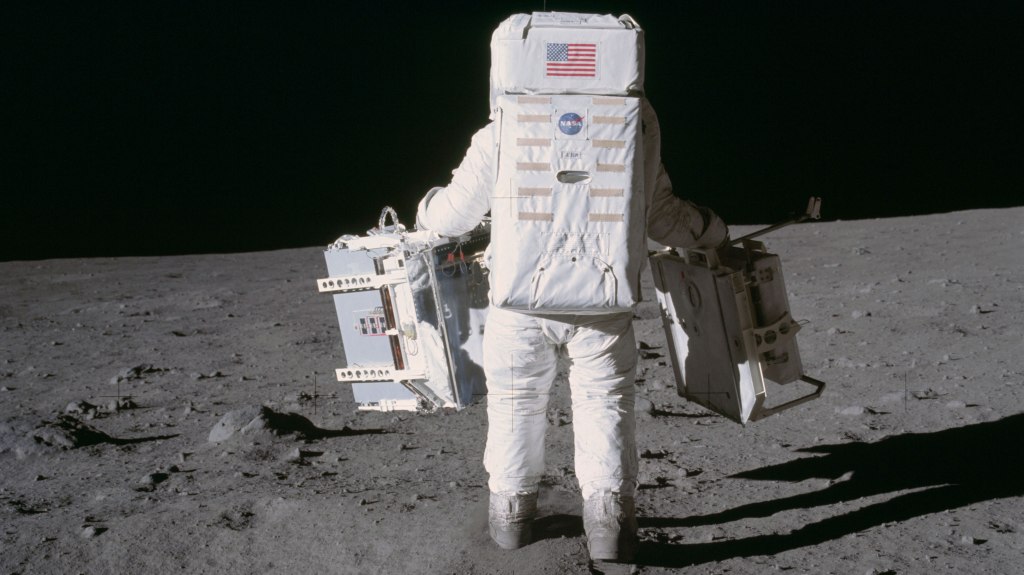Eric Paley
More posts from Eric Paley
In 1961, President John F. Kennedy told a joint session of Congress that before the end of the decade, America would put a man on the moon. This was not an empty political promise to get elected, but a commitment of a sitting president boldly exposing himself to political ridicule in the face of failure.
If we can take ourselves back to that moment, it would be fascinating to analyze the probability that such a feat could be accomplished. It had never even been close to being achieved and was perceived by many to be insanely risky. It was only six weeks after the first human cosmonaut Yuri Gagarin had visited space in a short suborbital flight and three weeks after American Alan Shepard had repeated this historic milestone.
Needless to say, the odds were long and our president was far from proposing something with a highly probable outcome. Had his ambitions defied the laws of physics, our best engineering plans indicated we were decades away, or cost estimates required more capital than US GDP, perhaps it would have been delusional. Instead, history would prove that Kennedy was imaging an improbable, yet possible future.
The probable
In my short two-year stint working in corporate America, I have learned a great deal about probable outcomes. Senior executives didn’t dare propose things that were merely possible. Proposals required evidence of a high probability of success. One could derail a carefully crafted career over missing a forecast by 20 percent, let alone being a year late on launch of a product. It was unwise to take real risks and dream big in such an environment.
When planning for a new product launch, numbers and timelines were always very conservative, as it was considered irresponsible to imagine the possible but improbable upside. We were taught to keep things grounded in highly probable outcomes and, not surprisingly, rarely created any outcomes beyond conservative ones, as we were never inspired or incentivized to do so. Not surprising so few large company executives function well in the startup world.
The possible
By contrast, in startups, great outcomes are never probable. The expected return of nearly every startup at the beginning is frighteningly close to zero. In the context of my corporate experience, it seems astonishing that anyone would ever start a company. Perhaps that’s why so few corporate executives ever chose to do so. Startups only exist because their founders are willing to suspend the disbelief of the probable and instead consider what is possible.
I’ve joked that no early-stage startup should ever beat its plan; beating a plan would suggest that the founder didn’t imagine the totality of what was possible and undersold the potential of the startup.
Dreaming big is the reason so many startups will fall short of their plan and nonetheless deserve to be called successful. Falling short of the extreme of the possible can yield a very exciting business. Corporate America might fire you, but an acquirer, by contrast, might reward you with a very significant exit.
The delusional
At the other extreme from the probable approach is a very dangerous view of the world – the delusional. Some startup founders are so enthusiastic that they dream of futures that are not credible; they dismiss the need for customer feedback to validate their view; and they have no indicators that suggest they can build what they imagine.
Many things can be quickly tested, and when data invalidates a hypothesis, it is very much time to move on. The delusional entrepreneur will procrastinate finding that invalidating data for as long as possible, and then still be dismissive of the results. These founders will burn through all the money and talent he can garner, but with little or no value creation at the end.
With the probable, there would be no reason to start a company. With the delusional, there is a real risk that the founder is wasting years of his life on something that will never materialize outside of his own head. There is no truth of pre-ordained outcome when starting a company. Great founders live between these extremes in the world of the possible and inspire others to share that worldview.
They test those possibilities every day and frequently refine what they believe is possible to find a winning path. Living in the world of the possible is how we put a human on the moon and how we will imagine and create the valuable technologies and companies of tomorrow. Keep your eyes to the sky and your feet planted firmly on the ground.































Comment